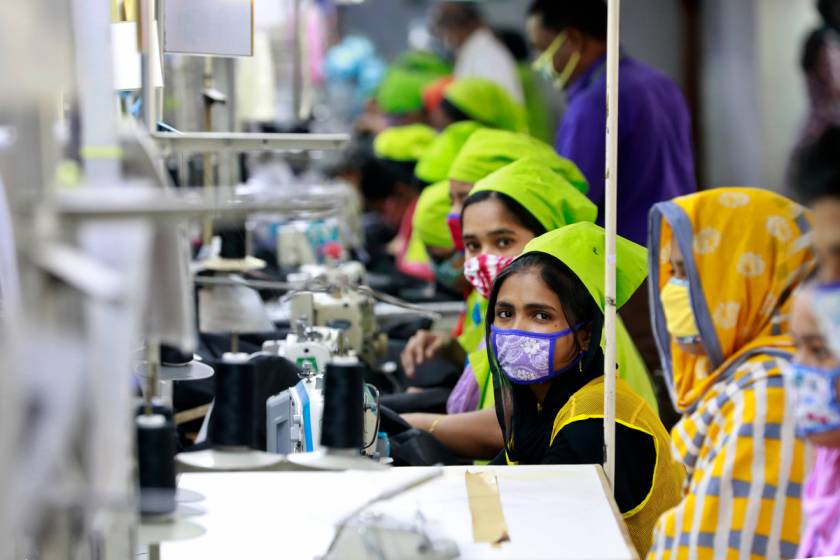3 Problems Procurement Supervisors Face And Their Solution



Procurement Management in Fashion
The first job that comes to mind when one thinks of the fashion industry is that of a Fashion Designer. The next set of jobs may include merchandiser, brand manager, or even a supplier or manufacturer. However, like any other business, a fashion brand needs the standard set of profiles that keep a business running. This is especially true for medium to large brands that are performing at scale. In such a scenario, finance professionals, technology professionals, HR professionals are required to keep the operation running seamlessly.
One such important role in any fashion brand is that of a Procurement Manager. A typical procurement manager’s job description for a fashion brand is similar to that of any other brand – identifying the right suppliers, negotiating the best prices, onboarding vendors, and managing strategic vendor relationships. Needless to say, the procurement manager is a critical member for any fashion brand to work in the most optimised manner.
A Day in the Life of a Procurement Manager
While everyone is aware of the responsibilities a fashion designer or merchandiser may have, there is little known about what a procurement manager’s life looks like within a fashion brand. A good way to get the idea is to read any fashion brand’s procurement manager job description. The description may give a fair idea of what is expected, yet it will typically cover the positive aspects of the job. So, reading the procurement manager job description may lead you to believe that you will need to do the following.
- Build relationships with internal stakeholders to identify the procurement needs.
- Formulate procurement plans and processes.
- Develop strategic relationships with key vendor partners.
Other pointers may appear, yet none of these will tell you about the problems that you may face daily. Here is a list of the 3 most common challenges you will face as a procurement supervisor in a fashion brand and some suggestions on how to solve them.
3 Common Problems faced by a Procurement Manager

A procurement manager for a fashion brand, or a fashion category within a brand, is an extremely responsible position. Given the impact this role can have on the overall ROI of the company, it is expected to be a challenging one. Critical decisions need to be made by a procurement manager regularly. While these challenges may not appear in the procurement manager’s job description, these are a well-known part of their daily routine. Some common issues that you will face as a procurement manager include the following.
- Cost vs Quality
A classic conundrum faced by every procurement manager in every industry. Minimising cost is a part of every procurement supervisor’s KRA. What is important to consider is the compromise on quality that can be afforded by the company to achieve this KRA.
For example – if you are responsible for buying fabric for the latest office-wear collection of your brand, you may not need to go for the most expensive silks available in the market. However, that doesn’t mean that you identify a supplier based on minimum cost, and when the fabric finally arrives, it has tears or is prone to tear at the slightest touch! That will be a disaster for the brand.
It is the same with every raw material that you will need to procure for a fashion brand – from buttons to laces and from zippers to shoelaces. The higher quality materials tend to be expensive. To reduce costs, you may have to opt for slightly lower quality, but the challenge here is to identify an acceptable limit.
Solution: The Cost vs Quality challenge is a part of every procurement manager’s life. Whether the company chooses to put it explicitly in their procurement manager job description or not, once you take up the position, you will have to deal with it. The best way forward is to have a working solution to address the challenge. Here are a few pointers that may come in handy when addressing this specific concern.
- Have a clearly defined requirement template for different products. This will help you define an acceptable quality standard, and you will know the extent to which you can negotiate. Work with the requisitioner to identify which factors are non-negotiable and where you have wiggle room. This will help you go to the vendor assessment meetings better prepared, with an objectively measurable benchmark.
- Know the reputation of the shortlisted vendors. Be thorough with your market research on their previous orders within and outside your organisation. This will help you screen out suppliers that have a bad track record in terms of the quality of materials.
- Inefficient Processes
Most fashion brands do not start as planned large-scale corporations. The typical path would be a designer who has organically grown due to the popularity of their designs. While this makes for a compelling brand story, this can also become a nightmare for teams that thrive on well-defined processes. A great example is the procurement process. Any new fashion brand may begin with sporadic purchases done either offline or, at best, on an Excel sheet. This may work well when the scale of operations is small. However, as the scale of operations becomes bigger, the absence of well-defined processes may lead to several challenges. Some challenges that you may face as a procurement manager for such a brand include the following.
- Decentralised Operations – As different lines of business grow within a fashion organisation, each may have its ad-hoc procurement process. This leads to issues like buying from competitors, missing out on bulk discounts, invisible or rogue spending, and no visibility on the overall procurement costs.
- Turn-around time for Approvals – Another challenge is in terms of the time taken for approvals for each such disjoint request. As an approver, if one has approved, say, the purchase of zippers from one department, they wouldn’t approve a similar request from another department the next day! If you are the procurement manager for the second business, this can only mean delays or missing out on a great discount opportunity.
- Inadequate Requirement Specifications – When people are used to ad-hoc methods for procurement, they may not be able to specify purchase requirements objectively. This may lead to quality compromises or may be incorrect material procurement.
- Last-minute Purchase Requests – Any designer is a creative individual who may not be able to forecast the exact need for specific materials much in advance. Without planning, this may mean a lot of last-minute purchase requests, which invariably end up being more expensive.

Solution: Some issues listed here are a reality of every procurement manager’s life, especially in an organically grown brand. While the procurement manager job description that interested you so much may not mention it explicitly, establishing a well-defined procurement process may be one of your biggest responsibilities. The benefits of driving such an initiative are manifold. You get clear visibility of the procurement needs of the organisation, can plan in advance, and most importantly, you will be able to get a lot of cost-saving by combining the multiple purchase requests. If you find no predefined procurement process in your organisation, work towards building one.
- Data Related Issues
Another important challenge faced by procurement managers of organically grown brands, and sometimes even well-established ones. The basis of all your decision-making must be factually correct data points. This helps eliminate a lot of mistakes. However, getting the correct data for your work may in itself become a huge challenge. Some data-related problems you may face as a procurement manager are listed here.
- No awareness about Company Strategy – Having visibility of the company’s vision and strategy can help you plan and make some tough decisions at the time of procurement if required. A lack of transparency may lead to incorrect decisions like procuring materials for a line that the company may be planning to discontinue.
- Absence of digitised data – For most fashion brands that have grown organically, some crucial data points may not be available at all. Even if they are available, they may be in the form of manual data entry in notebooks and an unstandardised form. This data may be inaccurate and will not be very helpful to make informed procurement decisions.
- Timely availability of Data – Another crucial factor is the timely availability of data for having the upper hand during price negotiations. With data present in silos, you may lose out on this advantage as a procurement manager.
Solution: The data issue may appear very complicated and have a long-term impact on your purchase decisions. However, the solution to this seemingly tough problem is a simple one. There is no way to change the past, but starting now, you must work towards digitising your data collection. This will help you define the information you need to gather and capture it accurately.
Summing Up
We saw some common problems procurement managers in any fashion brand might face and the ways to address these problems. If you liked this information, there is a lot more available on Fashinza. An end-to-end B2B platform for all fashion industry players, you can find peers, suppliers, manufacturers, and brands interacting with each other. You can find the materials you are looking for, place an order, and get them delivered to your facility. Or, you can read detailed articles like this on all things relevant to the industry. To find more information, and become a part of the community, visit the Fashinza website or app today.



















